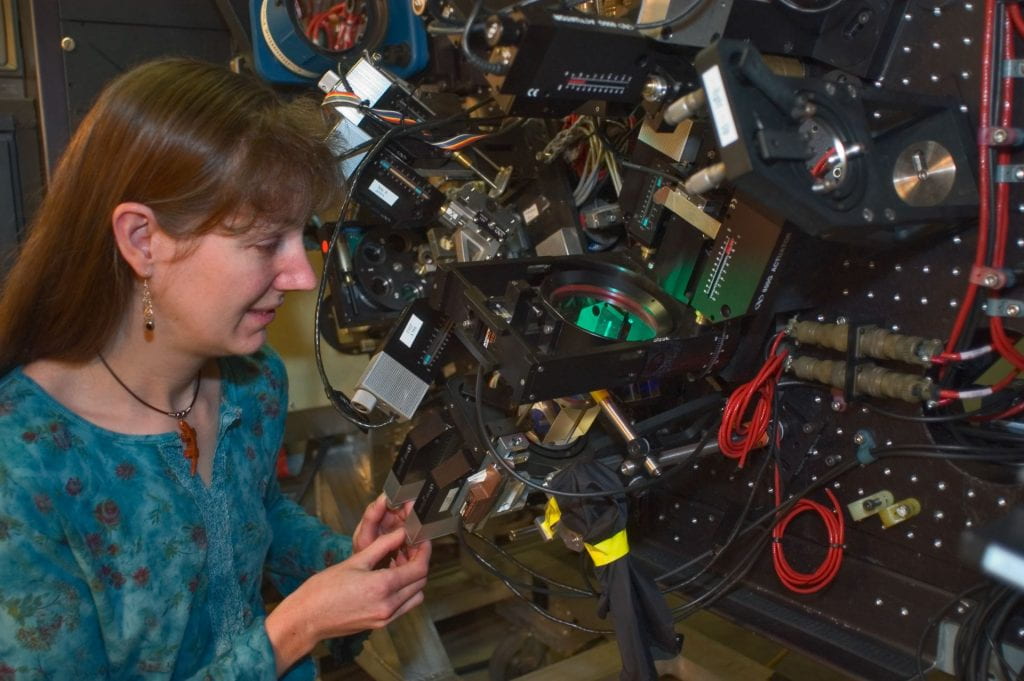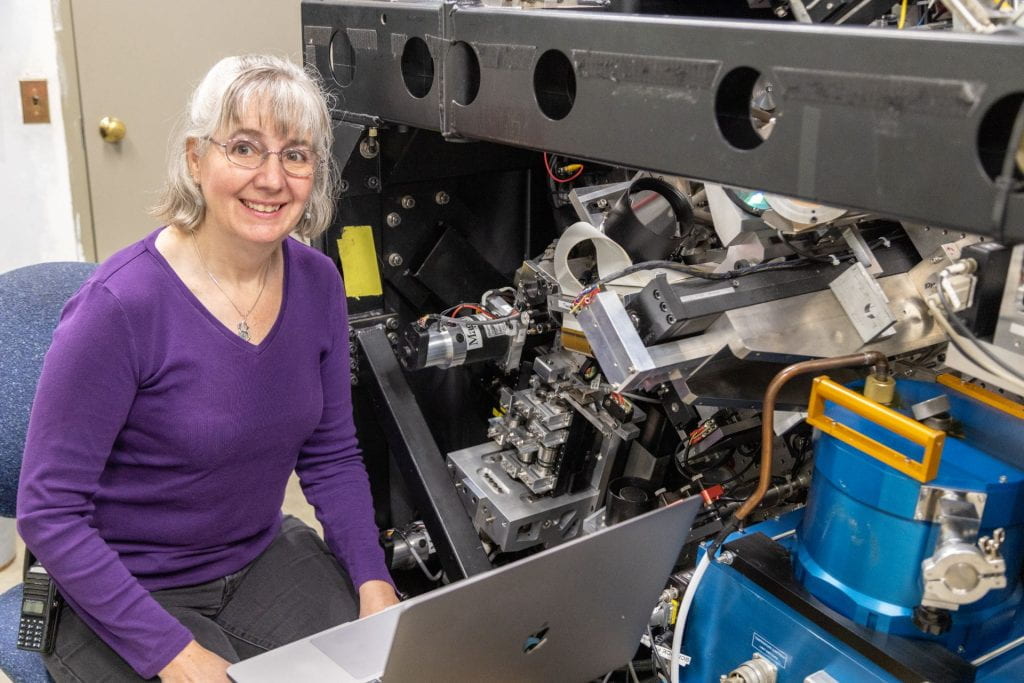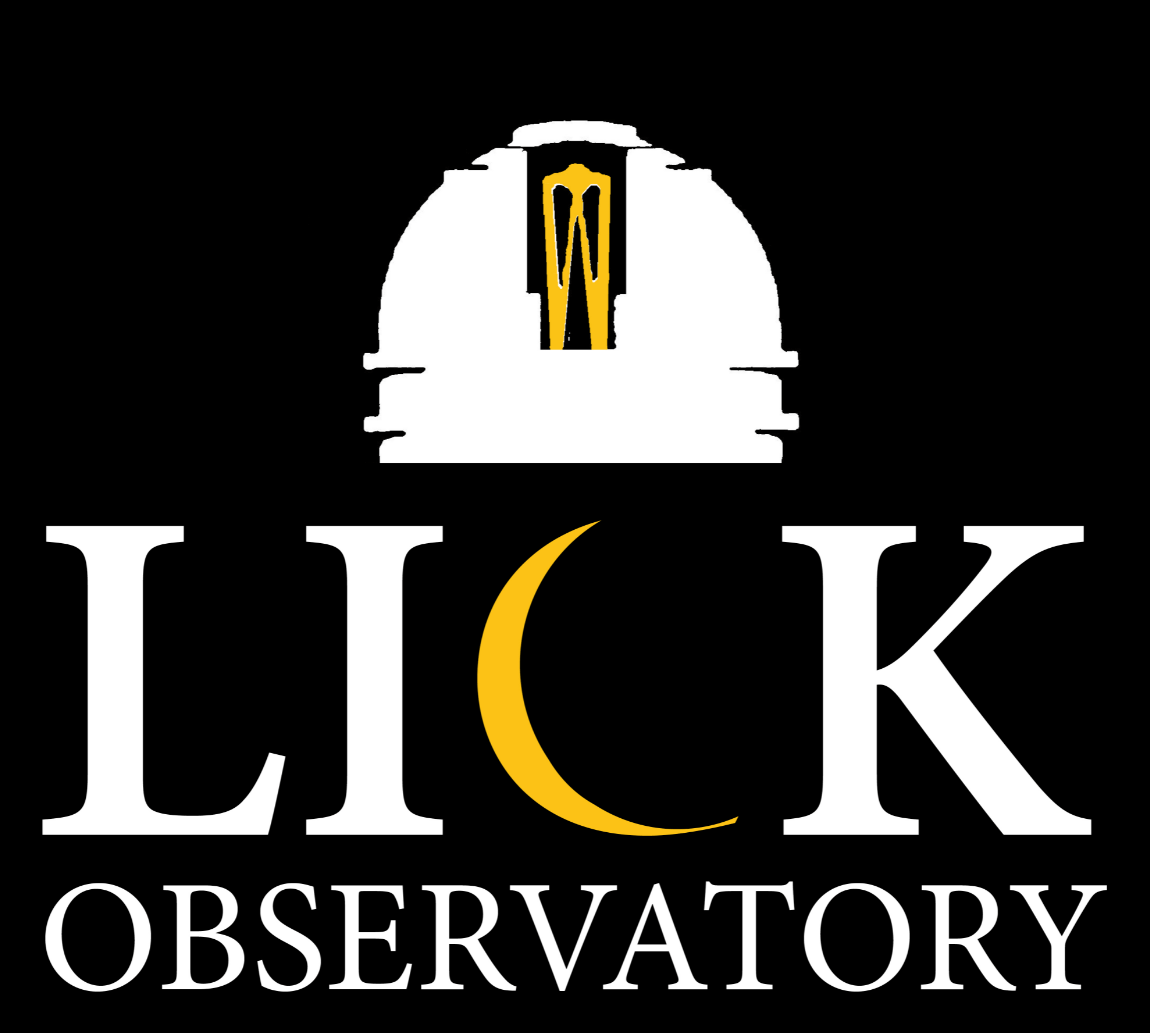

When did you start at Lick and what was your original role?
I started working at Lick Observatory in 1998 as a support astronomer. The main responsibilities were training visiting astronomers how to operate the telescopes, cameras and spectrographs to best acquire data for their individual research programs, and maintaining the equipment so it would work flawlessly for the visiting astronomers. Additionally, I was hired for my specialized knowledge in the new field of Adaptive Optics, which is instrumentation that measures the blurring of images caused by Earth’s atmosphere and corrects for it, in real time, to give us the sharpest images possible through the telescope. At the time Lick Observatory was deploying an adaptive optics instrument and I was hired to be the primary instrument scientist on site and transition it from a research and development instrument to a routinely used science instrument. Around these duties I also found time to do my own research on the supermassive black holes in quasars and their host galaxies.
What jobs can an entry level person do at an observatory?
Observatories need a wide range of people and skills to make sure cutting edge astronomical research can occur. This ranges from the support astronomers and instrument scientists making sure the cameras and spectrographs function properly and are used efficiently by the astronomers when they are taking data, to the telescope operators making sure the right targets are being observed and monitoring the weather and safety, to the facilities and telescope dome maintenance crew. Starting support astronomers generally have at least a Master’s degree in astronomy or astrophysics and experience working with instrumentation and data reduction, but today more often have a Ph.D as the technologies have gotten more sophisticated. Telescope operators and technicians usually have mechanical or electrical trade skills and an interest in astronomy or experience supporting scientific instrumentation. The building maintenance crew skills including general building, plumbing, electrical, HVAC, etc. skills, which keep the facility as a whole operating smoothly.
What is your job now?
Today my job includes not only the responsibilities I had when I started working at Lick Observatory over 20 years ago, but has evolved into testing new technologies in astronomical instrumentation and building and integrating new instruments with the existing telescopes, and commissioning new telescopes and instruments. I continue to engage in research on supermassive black holes at the centers of active galaxies, measuring their masses and environment. My education and teaching responsibilities have also expanded, so that I mentor undergraduate and graduate students through internships, teach observational astronomy workshops for graduate students, and I am the visitor services supervisor, so I’m in charge of all our public education and outreach programs, events (such as the popular Music of the Spheres concert series), visitor center, and gift shop, and the associated staff.
What would you say to encourage young women to consider astronomy as a career?
I think anyone who is captivated by the wonders of the night sky and the fascinating objects out there in the universe and wants to learn more should be encouraged to pursue their interests, which could lead to a career in astronomy. There are so many opportunities out there, from doing public education at science museums and planetariums or science journalism, to being a faculty member doing cutting-edge research using the telescopes and instruments and mentoring students, to working with the equipment and engineering, developing new technologies and instruments and telescopes, or creating new ways to analyze data with software.
I think the key is understanding what interests you most and you have a passion for learning more. That understanding and passion gives one the drive to persevere and overcome the obstacles (inevitably there will be challenges, e.g. hard classes, difficult colleagues, financial troubles, possibly the hardships of discrimination or sexual harassment, etc.) to do what interests you most. It helps to have a support network of people you can go to when times are tough for advice, e.g. fellow students, a trusted mentor, teacher, coach, family member, etc. Today physics and astronomy are still male dominated fields, but it has improved markedly in the 30 years I’ve been in the field, and continues to improve. Today, businesses and college campuses have programs to help improve diversity and equity and resources to assist women and minorities succeed.
I knew pretty early on that science and mathematics were what I was good at and what interested me most, with astronomy, geology, and paleontology being my favorite subjects. I was fortunate to have good role models, such as my mom finishing her PhD in chemistry while I was in high school and mathematicians and scientists in my family. It was in college that I figured out astronomy was my favorite science, but I still do geology and botany on the side as hobbies. It wasn’t until I was in graduate school working on my astrophysics Ph.D. that I discovered how much I enjoyed working on the hardware and technology aspects of astronomy, and how good I was at trouble-shooting equipment and fixing equipment when it wasn’t working properly, which opened up new career opportunities for me, enabling me to work at Lick Observatory full-time in my dream job, allowing me to work on cutting-edge research, technology, and share astronomy with students and the public.
